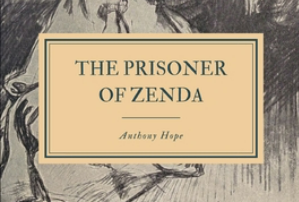Chapter 15 — I Talk with a Tempter
byChapter 15 – I Talk with a Tempter begins with the simmering conflict in Ruritania approaching a delicate crossroads. The kingdom, already on edge due to the ongoing power struggle between Duke Michael and the man impersonating the King—Rudolf Rassendyll—finds a temporary reprieve under the guise of diplomacy. To calm tensions following a violent encounter, Rudolf issues a public decree banning dueling. This strategic move, though necessary, is a double-edged sword. On the surface, it promotes order, winning praise from the people, Flavia, and even Duke Michael himself. Yet beneath it lies a more pressing concern: the illusion must be maintained, and any misstep could unravel the fragile ruse protecting the true King. Every word and gesture by Rudolf must walk the line between royal authority and the truth he dare not reveal.
The decree creates a strange peace in Zenda by day. As a neutral zone, it allows both factions to intermingle under a thin veil of civility, though the threat of betrayal always looms. One day, during a visit with Princess Flavia and Colonel Sapt, Rudolf encounters the Head of the Strelsau Police, who is following a report about a missing Englishman last seen in Zenda. The missing man, of course, is Rudolf himself, whose dual identity now endangers not just his mission but his life. Thinking quickly, he deflects suspicion by diverting the officer back to Strelsau, suggesting that the man may have never come to Zenda at all. This deft maneuver buys Rudolf more time, but the risk continues to mount. The web of lies grows more complex, and any loose thread could be fatal—for him or the King locked away in Michael’s castle.
Tensions rise further when Rudolf comes face-to-face with Rupert of Hentzau during a funeral procession for a fallen member of Michael’s entourage. The moment is laced with unspoken threats. Rupert, known for his charm and cruelty, initiates a private conversation that reveals far more than Rudolf expects. With calculated boldness, Rupert proposes a shocking alliance: he offers to help Rudolf eliminate Duke Michael, liberate the King, and take the throne himself—with Flavia at his side. The suggestion is chilling, equal parts treachery and temptation. It would mean sacrificing Michael and deceiving Flavia to secure power. Rupert’s offer is not just an insult to honor; it’s a test of character, delivered with the seductive ease of someone who sees betrayal as a tool, not a crime.
Rudolf’s immediate reaction is one of fury and disgust. He refuses the offer, not only on moral grounds but because it violates everything he has come to believe about duty and justice. Still, he cannot ignore Rupert’s intelligence and the dangerous confidence with which he moves through political chaos. Rupert represents everything Rudolf could become if he abandoned his principles—a shadow reflection, equally skilled but utterly unbound by conscience. Even more unsettling is Flavia’s brief admiration of Rupert’s appearance, unaware of the villainy cloaked in that charm. Her innocent remark strikes Rudolf in a way he does not expect. It reminds him of the stakes not only in politics, but in love. His feelings for Flavia are deepening, yet they are anchored in deception. She loves a man she believes to be King, not the outsider impersonating him for noble reasons.
The encounter with Rupert lingers in Rudolf’s mind long after it ends. The temptation offered was not just about seizing power—it was about ending the masquerade and claiming a life that might have been his, had circumstances been different. He knows, though, that giving in would cost him the one thing he has fought to protect: his honor. With that clarity, he recommits to his mission. His path will be harder and lonelier, but it will be right. The throne is not his to claim, and Flavia is not his to love freely. Still, he will fight for both—for their safety, for their future, and for the ideals that make his sacrifice meaningful.
This chapter stands as a turning point in the story, where ambition and ethics clash with dizzying intensity. Rupert’s offer is a mirror held up to the protagonist’s soul, and his rejection of it defines the heroism at the core of the novel. As danger circles closer, Rudolf Rassendyll knows that his greatest battle is not just for a kingdom—it is for the integrity of the man behind the crown.


